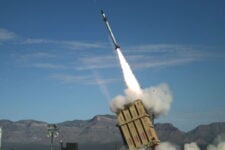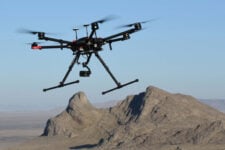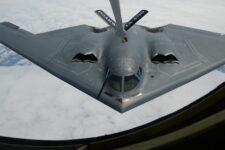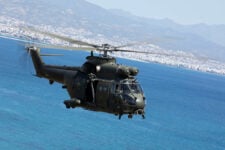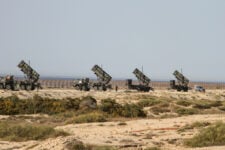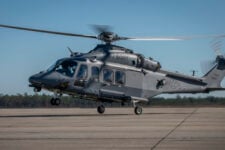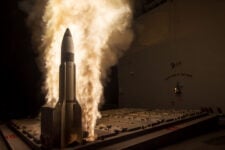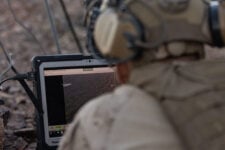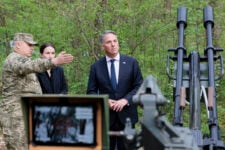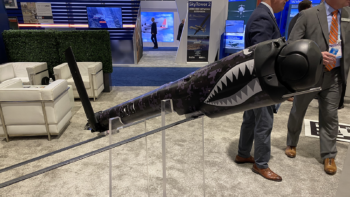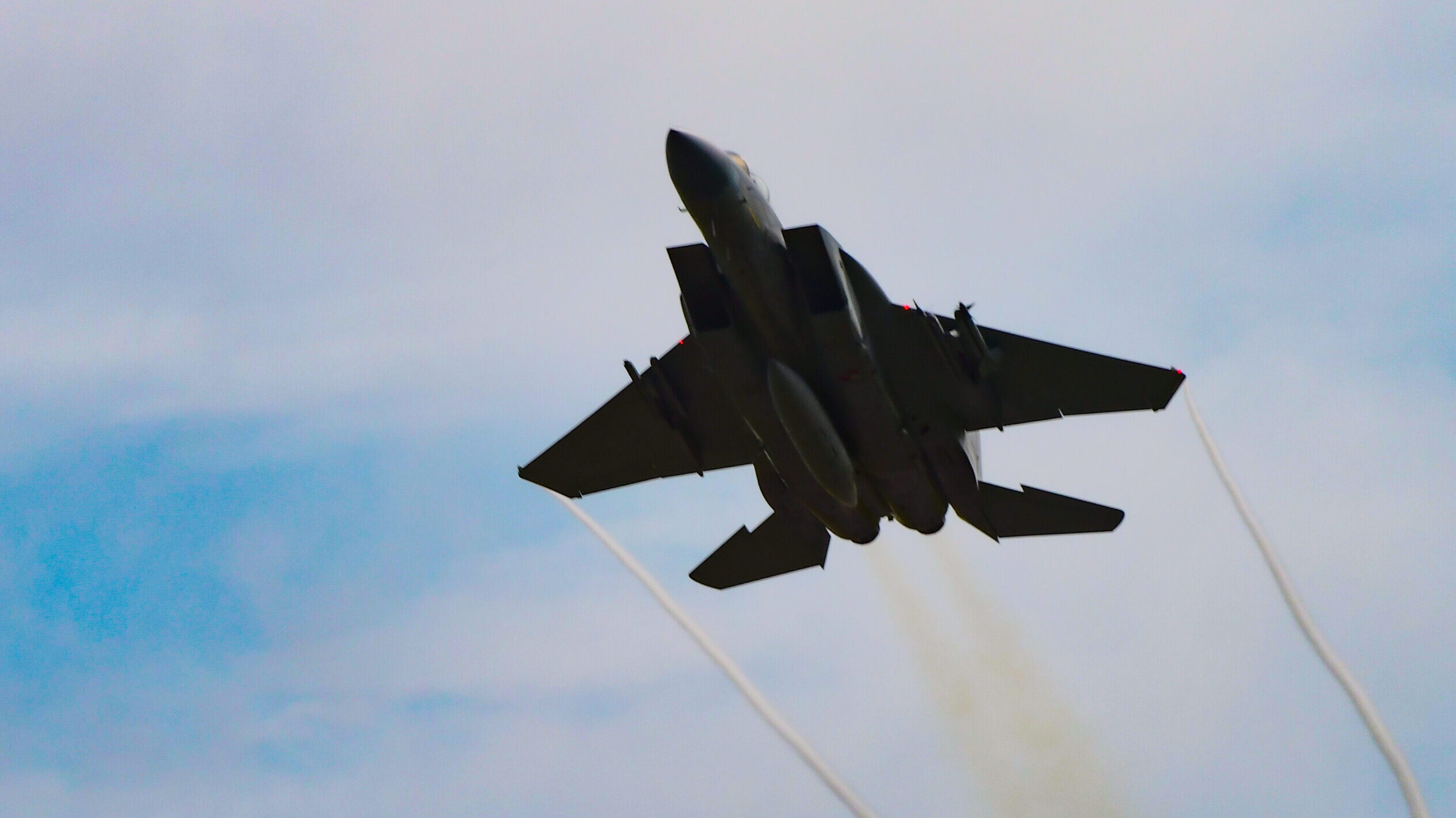
A U.S. Air Force F-15 Eagle assigned to the 44th Fighter Squadron, flies over Kadena Air Base, Japan, June 4, 2021. (US Air Force/Yosselin Perla)
WASHINGTON: A top US general today told lawmakers that he believes the US will provide F-15 fighter aircraft to Egypt.
“In the case of Egypt, I think we have good news in that we’re going to provide them with F-15s,” Gen. Frank McKenzie, head of US Central Command, told the Senate Armed Services Committee. It “was a long, hard slog” to get such a deal set up, he added.
The general’s remarks come ahead of the standard notification that the Defense Security Cooperation Agency routinely provides to the public and lawmakers about foreign military sales, and McKenzie did not elaborate on any specifics regarding number of aircraft or price. The US Central Command chief was testifying to lawmakers alongside Gen. Stephen Townsend, head of US Africa Command, about the status of their respective areas of responsibility.
The United States, in recent history, has hesitated to provide arms to Egypt largely due to the 2013 military coup aimed at removing the country’s then-president Mohamed Morsi. The State Department halted several pending sales of helicopters, fighter jets, tank components and anti-ship missiles immediately following the Egyptian military’s actions to voice displeasure over human rights crackdowns that followed the coup.
Indeed, a new report by the Stockholm International Peace Research Institute concluded that, despite the US being the largest exporter of arms in the world, Egypt has recently imported most of its weaponry from Russia (41%), France (21%) and Italy (15%).
The successful sale of F-15s to Egypt could also have second-order effects on the 2018 deal Egypt made with Russia for $2 billion in Su-35 fighter jets.
Probably sounds a death knell for any Su-35 deal with Russia, if it wasn't dead already… https://t.co/8q9amCuwVP
— Gareth Jennings (@GarethJennings3) March 15, 2022
Concerns in Africa
Separately, lawmakers questioned Townsend about the impacts of the Trump administration’s decision to withdraw US troops stationed in Somalia. The AFRICOM chief described the impact as forcing US troops to “commute to work” from other countries such as Kenya and Djbouti. That commute makes the US “not effective, not efficient and it puts our troops at risk.”
When asked if he has sought additional forces to station in Somalia from his chain of command, Townsend said he provided advice to his superiors but has not yet received a response.
Another topic of interest for lawmakers was China and Russia’s increasing interest in influencing African nations, for either strategic or geopolitical advantages. China’s efforts to make inroads through financial programs as well as Russian paramilitary organizations, such as the Wagner Group, were both brought up multiple times throughout the hearing.
RELATED: Russia’s invasion of Ukraine has created NATO’s watershed moment
Groups like Wagner are “present in Libya… in a lesser extent in Sudan, they essentially run the Central African Republic and they are now in Mali… What we’ve been doing is shining a spotlight on that with information operations… and advising our African partners to try and stay clear of these groups,” Townsend said.
Sen. Tommy Tuberville, R- Ala., asked Townsend if he believed a second permanent US military base in Africa was necessary, but the general said it was not.
“In my view, I don’t believe we do need any other permanent US installations” in Africa, Townsend said.
Lawmaker questions directly related to the war in Ukraine were limited, but McKenzie confirmed reports that small groups of Syrians, possibly recruited by the Russian military, were trying to travel to Ukraine.
RELATED: Russia may be holding cyber capabilities in reserve, so US must keep its shields up: Experts
Townsend was asked about how he believes African nations view the European conflict. The general referenced a recent United Nations vote concerning the conflict in which some countries condemned the invasion, others abstained or didn’t vote and just one country, Eritrea, supported Russia’s actions.
They are “trying to see how this will play out,” Townsend said. Many African countries have economic ties to China or Russia and they “are biding their time.”
Lockheed, Howmet settle lawsuit over F-35 titanium (EXCLUSIVE)
Lockheed Martin alleged in court filings that Howmet cut off the supply of titanium after the aerospace giant refused to agree to higher prices, threatening production of the F-35.

